
CONNECTIVE TISSUE RESEARCH
Scope & Guideline
Connecting Discoveries in Biochemistry, Orthopedics, and Beyond
Introduction
Aims and Scopes
- Connective Tissue Biology and Physiology:
Exploration of the molecular and cellular mechanisms underlying the biology of connective tissues, including the roles of various cell types and extracellular matrix components. - Pathophysiology of Connective Tissue Disorders:
Investigation into the mechanisms of diseases affecting connective tissues, such as osteoarthritis, osteoporosis, and various genetic disorders, aiming to identify potential therapeutic targets. - Regenerative Medicine and Tissue Engineering:
Research on innovative strategies for the regeneration and repair of connective tissues, including the use of stem cells, biomaterials, and growth factors. - Biomechanics of Connective Tissues:
Analysis of the mechanical properties of connective tissues and their implications for injury, repair, and functional outcomes. - Immunology and Inflammation in Connective Tissue Diseases:
Study of the immune responses and inflammatory processes associated with connective tissue disorders, aiming to understand their role in disease progression and treatment. - Translational Research:
Facilitating the application of basic research findings to clinical practice, particularly in the development of new therapies and interventions for connective tissue diseases.
Trending and Emerging
- Integrative Approaches to Regeneration:
An increasing number of studies explore the integration of biomaterials, stem cell therapy, and mechanical stimulation for the regeneration of connective tissues, highlighting a multidisciplinary approach to healing. - Molecular Mechanisms of Osteogenesis and Chondrogenesis:
There is a growing emphasis on understanding the molecular pathways that govern bone and cartilage formation, with research focusing on signaling molecules, transcription factors, and epigenetic modifications. - Role of Extracellular Vesicles in Tissue Repair:
Research on the therapeutic potential of extracellular vesicles derived from stem cells has gained momentum, providing insights into intercellular communication and regenerative mechanisms. - Biomechanical Assessments and Their Clinical Implications:
An emerging trend in the journal is the emphasis on biomechanical evaluations and their relevance to clinical outcomes in connective tissue injuries, fostering a better understanding of tissue mechanics. - Personalized Medicine in Connective Tissue Disorders:
The exploration of personalized therapeutic strategies based on genetic, molecular, and environmental factors is becoming increasingly prominent, reflecting a shift towards tailored treatment approaches.
Declining or Waning
- Traditional Surgical Techniques:
Research emphasizing traditional surgical approaches to connective tissue repair has become less frequent, as newer, less invasive techniques and regenerative therapies gain traction. - In vitro Studies with Limited Clinical Relevance:
There has been a noticeable decrease in studies that rely solely on in vitro models without subsequent validation in vivo, as there is increasing emphasis on translational research that connects laboratory findings to clinical applications. - Focus on Inflammatory Cytokines Alone:
Research solely centered on the role of inflammatory cytokines in connective tissue disorders has waned, with a shift towards a more integrated approach that considers multiple signaling pathways and cellular interactions.
Similar Journals
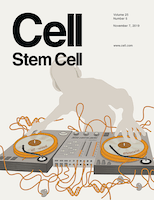
Cell Stem Cell
Exploring Breakthroughs that Shape the Future of Regenerative MedicineCell Stem Cell, published by CELL PRESS, is a premier journal at the forefront of cellular biology, genetics, and molecular medicine. With an esteemed impact factor and recognized as a Q1 journal in multiple categories including Cell Biology, Genetics, and Molecular Medicine, it offers researchers, professionals, and students rigorous, peer-reviewed articles that shape the future of stem cell research and regenerative medicine. Located in Cambridge, MA, this journal has become an invaluable resource since its inception in 2007 and is committed to disseminating groundbreaking findings that drive innovation and understanding in these critical fields. By consistently ranking within the top percentile of its categories in Scopus, Cell Stem Cell remains an essential platform for scholarly communication, fostering collaboration among leading scientists worldwide. Although the journal does not currently offer open access options, its comprehensive insights are pivotal for anyone engaged in the study of stem cells and their applications.

Stem Cells International
Exploring Breakthroughs in Stem Cell TechnologyStem Cells International is a premier open access journal published by HINDAWI LTD, focusing on the rapidly evolving field of stem cell research. With an ISSN of 1687-966X and E-ISSN 1687-9678, this journal has been a vital resource since its inception in 2010, showcasing innovative studies and breakthroughs up to 2024. Positioned in Q3 in Cell Biology and Q2 in Molecular Biology for 2023, as well as well-ranked in the Scopus database, the journal serves as an essential platform for researchers, professionals, and students dedicated to exploring the implications of stem cell technology in regenerative medicine and biological research. The open access model ensures wide accessibility, fostering collaboration and knowledge-sharing across the scientific community, making it a cornerstone in advancing the understanding and application of stem cell science.

BMC Molecular and Cell Biology
Championing high-quality insights in molecular and cell biology.BMC Molecular and Cell Biology is a forward-thinking open-access journal published by BMC, specializing in the vital fields of molecular biology and cell biology. Since its inception in 2019, the journal has carved a niche for itself, ranking in the Q3 quartile in both Cell Biology and Molecular Biology categories as of 2023. With an ISSN of N/A and an E-ISSN of 2661-8850, the journal provides a platform for groundbreaking research, high-quality reviews, and innovative methodologies. Situated in the United Kingdom, BMC Molecular and Cell Biology promotes a diverse range of studies, addressing fundamental questions in biology that resonate with both experts and new researchers alike. The journal's commitment to open access ensures that valuable findings are readily available to the global scientific community, fostering collaboration and knowledge-sharing across disciplines. Researchers aiming to contribute to the field of cell and molecular biology will find this journal an indispensable resource for both publishing and staying informed on the latest advances.
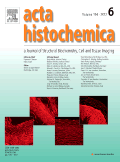
ACTA HISTOCHEMICA
Elevating Histochemistry: Where Research Meets Real-World ImpactACTA HISTOCHEMICA, a prestigious journal published by Elsevier GmbH, is dedicated to advancing the field of histochemistry and its applications within cell biology and medicine. With an ISSN of 0065-1281 and an E-ISSN of 1618-0372, the journal provides a critical platform for the dissemination of high-quality research findings and reviews, integral for both emerging and established scholars. Since its inception in 1954 and continuing through to 2024, ACTA HISTOCHEMICA has maintained a strong commitment to publishing significant advancements in histology and cell biology, as evidenced by its categorization in Q3 for Cell Biology and Histology, as well as Q2 in miscellaneous medicine for the year 2023. The journal ranks favorably in Scopus, holding the 27th rank in Histology and a 200th rank in Cell Biology, highlighting its importance to the academic community. With its headquarters in Munich, Germany, ACTA HISTOCHEMICA continues to attract contributions from global researchers, fostering an international dialogue essential for the growth of knowledge in histochemistry and related disciplines.
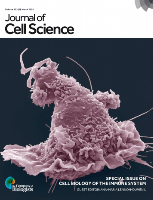
JOURNAL OF CELL SCIENCE
Exploring the frontiers of cell biology research.JOURNAL OF CELL SCIENCE, with ISSN 0021-9533 and E-ISSN 1477-9137, is a distinguished publication in the field of Cell Biology, released by COMPANY BIOLOGISTS LTD in the United Kingdom. Since its inception in 1966, this journal has served as a vital platform for disseminating cutting-edge research and reviews that significantly advance our understanding of cellular processes and innovations. Currently positioned in the Q1 category within the 2023 rankings, this journal is recognized for its high impact and quality, holding a notable Scopus rank of 120 out of 285 in the Cell Biology category, placing it within the 58th percentile. While not an open-access journal, it provides extensive access options for readers and institutions, ensuring that pivotal research is accessible to a wide audience. With converged publication years leading toward 2024, JOURNAL OF CELL SCIENCE continues to be an essential resource for researchers, professionals, and students alike, fostering a deeper understanding of the intricate workings of cell biology.
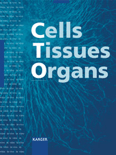
CELLS TISSUES ORGANS
Pioneering Research in Biological Structures and Functions.CELLS TISSUES ORGANS is a renowned academic journal published by KARGER, focusing on pivotal research within the fields of Anatomy and Histology. Based in Switzerland, this journal has been disseminating influential scientific findings since 1889, contributing to our understanding of cellular structures and tissue functionality. With a current impact factor that places it in the Q2 quartile for both disciplines, it serves as a vital resource for researchers, professionals, and students seeking to stay abreast of significant advancements and discussions in these areas. The journal embraces an Open Access model, ensuring that high-quality, peer-reviewed articles are freely available, thus enhancing visibility and accessibility of critical research. As it continues to foster scholarly communication and innovation up to 2024, CELLS TISSUES ORGANS plays a crucial role in shaping the future of biological sciences and medical research.
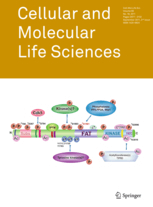
CELLULAR AND MOLECULAR LIFE SCIENCES
Shaping Tomorrow's Science Through Rigorous Research TodayCELLULAR AND MOLECULAR LIFE SCIENCES, published by SPRINGER BASEL AG, stands as a premier journal dedicated to advancing the field of cellular and molecular biology. With an impressive 2023 impact factor reflected in its Q1 rankings across key categories—including Cell Biology, Molecular Biology, and Pharmacology—it serves as a critical platform for researchers aiming to disseminate high-quality findings in these dynamic fields. Operated under an open access framework, the journal allows broader accessibility to groundbreaking research, fostering collaboration amongst scientists globally. Based in Switzerland, CELLULAR AND MOLECULAR LIFE SCIENCES has been at the forefront of scientific publishing since 1952, adapting to contemporary scientific challenges and trends, ultimately shaping the future of life sciences.

CELL AND TISSUE BANKING
Pioneering research in cell biology and tissue sustainability.CELL AND TISSUE BANKING, published by Springer, is a prominent journal dedicated to advancing the fields of biomaterials, biomedical engineering, cell biology, and transplantation. With its ISSN 1389-9333 and E-ISSN 1573-6814, the journal plays a crucial role in disseminating high-quality research from its inception in 2000 to its ongoing contributions through 2024. Situated in the Netherlands, it boasts a respectable 2023 impact factor with notable quartile rankings, positioning it within the Q3 category for biomaterials, biomedical engineering, and transplantation, and Q4 for cell biology. Furthermore, its Scopus rankings underscore its relevance and influence, particularly in the fields of medicine and engineering. Although it does not currently offer open access options, the journal remains a vital resource for researchers, professionals, and students alike, fostering innovation and knowledge transfer in the critical areas of cell and tissue sustainability.

Journal of Orthopaedic Translation
Exploring groundbreaking studies that redefine orthopedic care.The Journal of Orthopaedic Translation is a leading peer-reviewed publication dedicated to advancing the field of orthopedics through innovative research and clinical implications. Published by Elsevier and available as an Open Access journal since 2013, it ensures that cutting-edge insights and findings are accessible to a global audience, promoting collaboration and knowledge sharing among researchers, professionals, and students. With an impressive impact factor, the journal has achieved a remarkable Q1 ranking in the categories of Orthopedics and Sports Medicine, placing it in the top 1% of journals in this highly specialized field. As of 2023, it ranks #5 out of 321 in conjunction with a notable 98th percentile achievement in Scopus Ranks, underscoring its reputation for excellence and relevance. Through a focus on both basic and applied research, the Journal of Orthopaedic Translation aims to bridge the gap between laboratory and clinical practice, contributing significantly to the evolving landscape of orthopedic health. Join us in exploring the transformative studies shaping the future of patient outcomes and surgical interventions.

AMERICAN JOURNAL OF PHYSIOLOGY-CELL PHYSIOLOGY
Fostering Innovation in the Heart of Cellular Science.Welcome to the American Journal of Physiology-Cell Physiology, a premier publication produced by the American Physiological Society that has been a cornerstone of research in cell biology and physiology since its inception in 1977. With its esteemed reputation solidified by its Q1 ranking in both Cell Biology and Physiology categories as of 2023, this journal serves as a vital resource for researchers, professionals, and students pursuing cutting-edge discoveries in cellular mechanisms. The journal is published in the United States and is recognized for its rigorous peer-review process, contributing to its high impact factor and prestigious standing—ranking #32 out of 193 in Physiology and #75 out of 285 in Cell Biology according to Scopus. While the journal does not provide open access, it remains an essential repository of knowledge, fostering innovation and advancing the field with original research articles, reviews, and commentaries. Join us in exploring the molecular intricacies of life through the compelling research that the American Journal of Physiology-Cell Physiology has to offer.